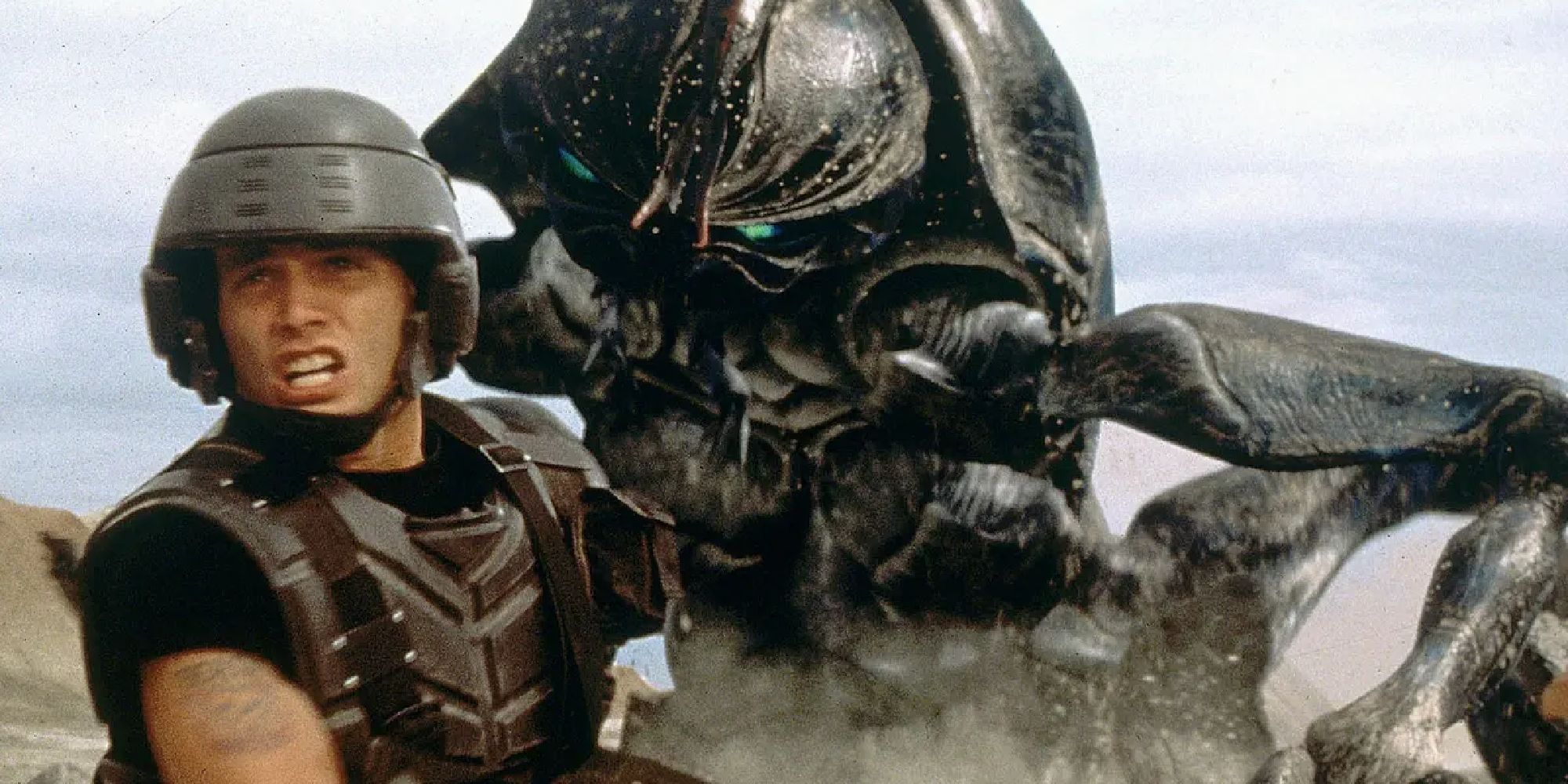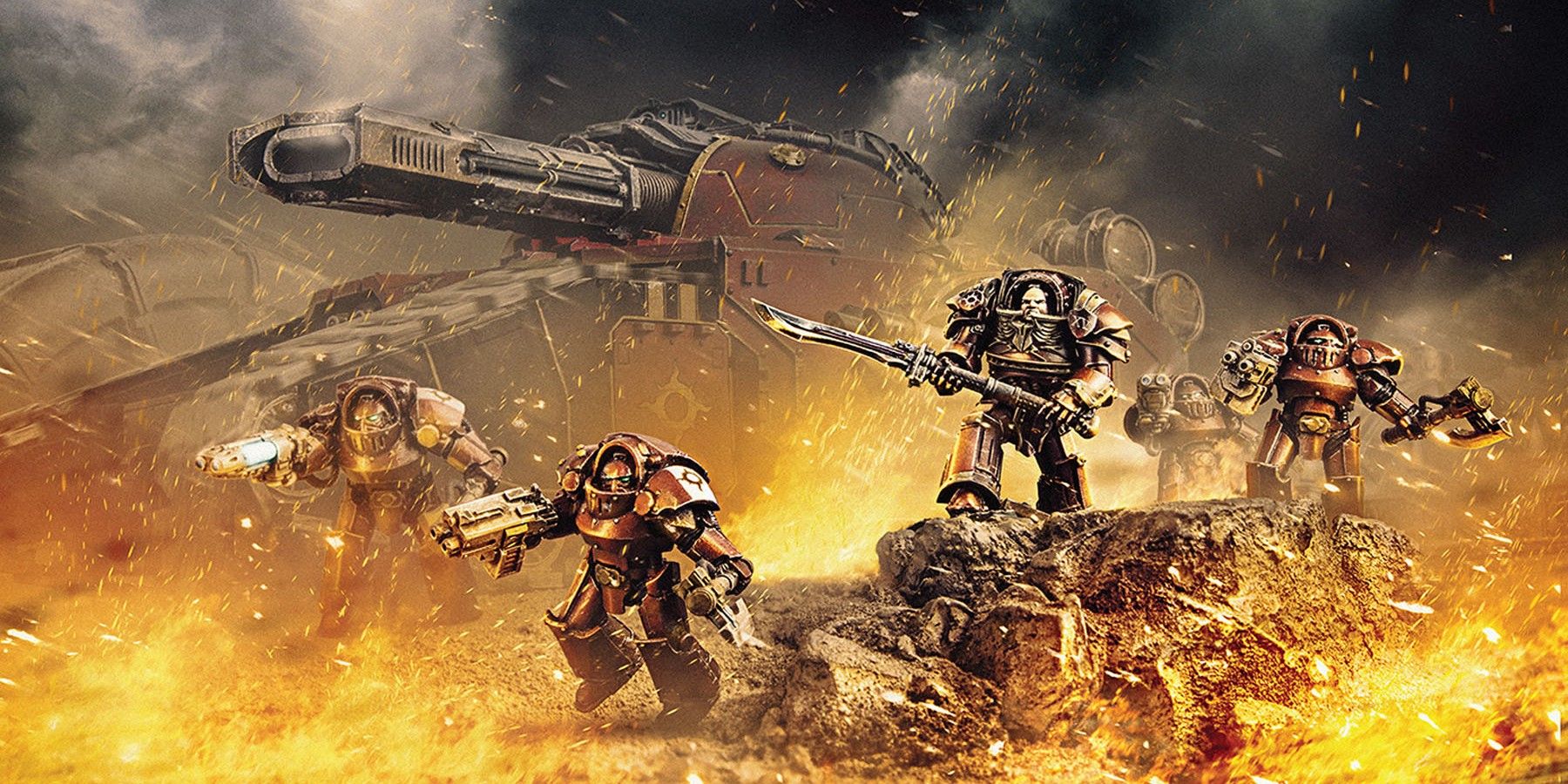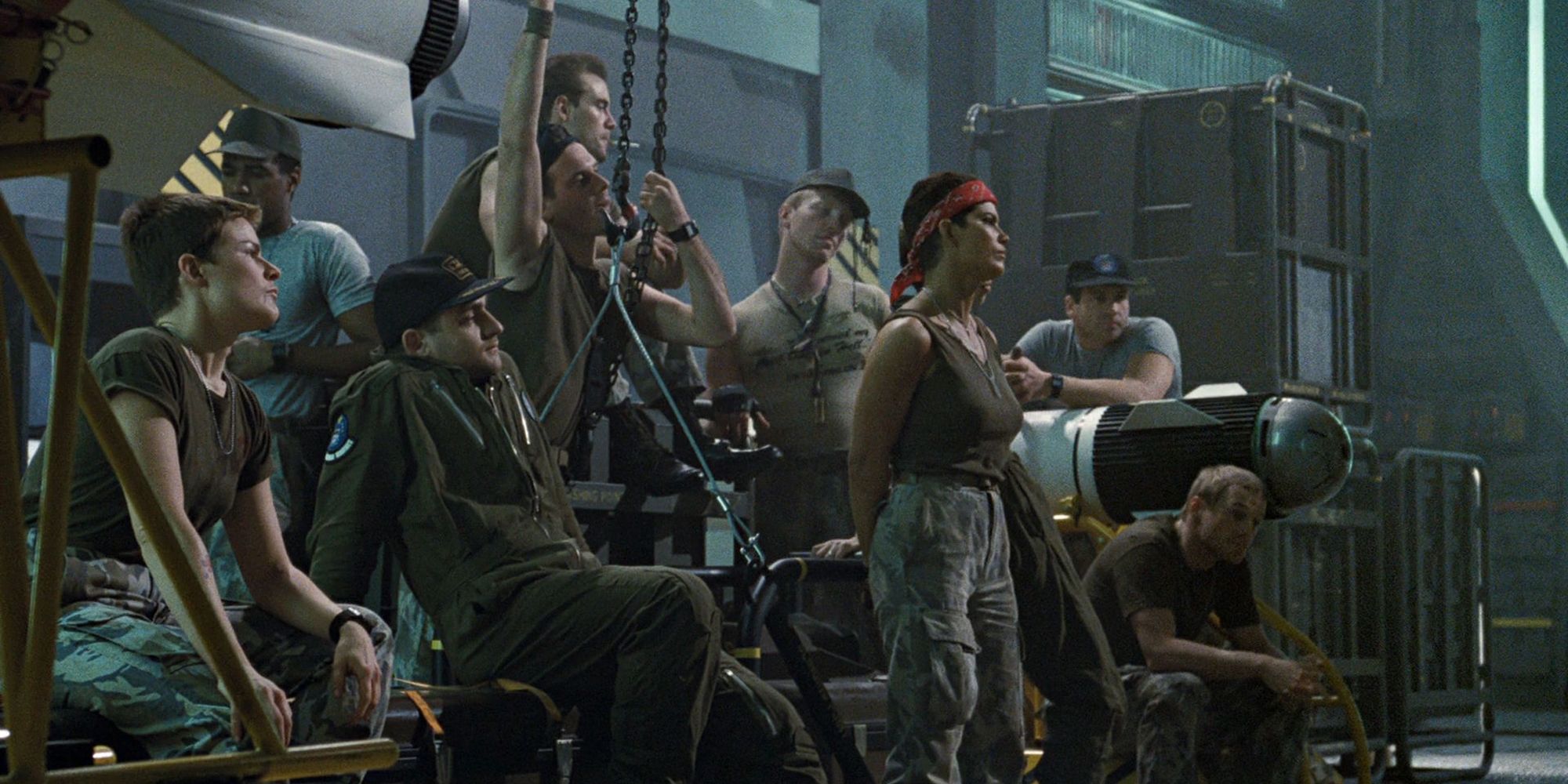Taking a long-established staple of fiction and sending it hurtling into space is a respected and common feature of science fiction stories. Fans of the genre have seen more space westerns, space operas, and even space fantasies than they can count. What happens when the tropes of science fiction come into collision with the world of war stories?
It seems like war is the impetus, backdrop, or central theme of most works of fiction over the years. Wars of the past make up all the best period pieces. Wars of the modern day generate non-stop thrillers ripped straight from the headline. Wars of the future provide some of the most engaging sci-fi stories of the medium.
Military science fiction is the sub-genre most concerned with the mechanics of armed conflict in the far-flung settings of sci-fi. This typically involves deep-space battles, laser rifle skirmishes on unfriendly terrain, countless powered infantrymen sent to slaughter, and the general inhumanity of it all painting the story in a very grim light. Sometimes it is as simple as translating a real historical battle into a new technological environment. Other times it's a fictional conflict against aliens or robots. The big difference is the focus. While most ongoing sci-fi stories contain some form of mass conflict, military sci-fi puts the war aspects of the story into the central focus. Despite the title, something like Star Wars isn't a work of military sci-fi, with a few exceptions. Compare it to something like Warhammer, and the difference becomes clear.
In the late 1800s, a genre of fiction known as "invasion stories" became popularized. These were part fictional war epic and part political commentary, addressing some issues of military policy with a theoretical stress test. The first big name was George Chesney's 1871 novella The Battle of Dorking: Reminiscences of a Volunteer. That story saw Britain invaded by a fast-moving invasion force that easily captures the nation and seizes its land mass to be distributed elsewhere. Dorking was one of several works to capitalize on this threatening storytelling structure, but it was also one of the first works of military sci-fi. The fictional unnamed German-speaking army wielded poorly described "fatal engines", some kind of super weapon that allowed them to defeat the British Royal Navy in moments. This foundational work of sci-fi led the path for much more imaginative examples of the genre which borrowed elements and added new creative concepts.
Robert Heinlein's 1959 novel Starship Troopers is one of the seminal works of military sci-fi, but its execution is wildly different based on which version of the story fans were exposed to. Heinlein's Starship Troopers was a commentary on what he felt was appeasement from the US in their dealings with the Soviet Union. Paul Verhoeven's 1997 film adaptation was an oft-misunderstood ironic critique of the book's perceived fascist leanings. Both are unquestionably central works in the sub-genre. The trend in literature was largely given form by Heinlein's iconic work. Its focus on war is all-consuming, concerning everything from war as a central tenant of public education to military service as a condition of suffrage. If sci-fi fans need a primer on the genre, both the original and the adaptation serve as perfect lessons.
The battles of military sci-fi are often against non-human foes. Armies of aliens make good enemies to stress test the weapons of the future against. After Ridley Scott's masterful sci-fi horror film Alien, the follow-up by director James Cameron took the franchise in a military sci-fi direction. Scott and his team had created one of the most perfect alien threats in fictional history and set it loose on an unsuspecting team of engineers. Cameron wanted to give mankind the weapons to fight back. The Colonial Marines of the Alien franchise are startlingly similar to the eponymous Starship Troopers in design and effectiveness. It's one of the best films in the sub-genre.
The military sci-fi sub-genre extends to every culture, and one of its greatest proponents is Japan. Many standouts of the enduringly popular mecha genre are also works of military sci-fi. The mech suit is one of the most powerful and iconic weapons of war, leading to a natural fixation on the way that war is conducted. Yoshiyuki Tomino's 1979 anime classic Mobile Suit Gundam is about a young Japanese civilian who discovers a preternatural connection with a towering war robot. It depicts the ongoing conflict between the Principality of Zeon and the Earth Federation. It's a war story that has gone on to inspire over a dozen spin-offs. The concept endures today, within the franchise and beyond, and military sci-fi makes its most dynamic statements with giant robots.
Military sci-fi is an interesting sub-genre in its focus and variability. From its premise, it sounds limited and strict, but creators have managed to pull a ton of interesting stories from its narrow bounds.



